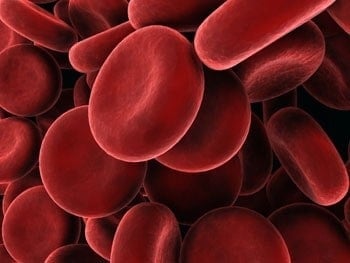Hematology researchers have safely and effectively treated children and young adults for autoimmune blood disorders in a multicenter clinical trial. In children with one of those conditions, autoimmune lymphoproliferative syndrome (ALPS), all the patients showed a durable, complete response, with normal blood cell counts and rapid improvements, a result the study team called “profound.”
“Patients with ALPS and similar autoimmune disorders have had few long-term treatment options for managing their disease,” said study leader David T. Teachey, M.D., a physician-researcher in hematology and oncology at The Children’s Hospital of Philadelphia (CHOP). “The immunosuppressive drug we used, sirolimus, is effective and well-tolerated, with very few side effects.”
The study appears online today in Blood. Karen Bride, M.D., Ph.D., from CHOP is the first author. Collaborators from 15 medical centers contributed to the research; Teachey and Bride had study co-authors from four institutions.
ALPS is one of the autoimmune cytopenias, a group of diseases in which the immune system inappropriately destroys blood cells. Patients may suffer anemia, uncontrolled bleeding and vulnerability to infections. Parents often see their children struggle with swollen lymph nodes, painful enlarged spleens, fatigue and anxiety. Because autoimmune cytopenias are relatively rare, families often experience a “diagnostic odyssey”–years of testing, bleeding and unsuccessful treatments before receiving an accurate diagnosis.
Conventional treatment for autoimmune cytopenias uses corticosteroids to suppress the immune system. However, some patients cannot tolerate these drugs, or develop resistance. Moreover, over the long term, corticosteroids increase the risk of osteoporosis and vulnerability to infection.
The current study builds on preliminary results published by Teachey and colleagues in 2009, showing sirolimus successfully treated a small cohort of five children with ALPS. Most were treated at CHOP, which has one of the world’s largest clinical programs for ALPS patients.
In the current study, the first prospective multicenter trial of sirolimus in patients with refractory autoimmune cytopenias, there were 30 participants, ranging in age from five to 19 years old. Twelve patients had ALPS, six had other autoimmune cytopenias, and 12 others had secondary cytopenias caused by other underlying autoimmune diseases. All were intolerant of or resistant to corticosteroids.
Of the 12 children with ALPS, 11 had complete responses–normal blood cell counts–from one to three months after receiving sirolimus, with the 12th patient having a complete response after 18 months. Patients also had improvements in spleen and lymph node abnormalities. All 12 patients were able to discontinue steroids and other drugs within one to three months after receiving sirolimus. Over a median follow-up of two years, there were few adverse side effects, primarily mucositis–an inflammation of the mucous membranes.
The majority of the patients with non-ALPS, secondary autoimmune cytopenias (8 out of 12), also had complete responses, although later than for ALPS patients. The six patients with other autoimmune cytopenias had less robust results–one complete response and two partial responses.
Sirolimus, an immunosuppressant also known as rapamycin, has long been used to prevent rejection after a solid organ transplant. Based on the new findings, the study team recommended that doctors should consider using sirolimus early in the management of patients with autoimmune blood disorders that require ongoing treatment. In addition, said Teachey, further studies should investigate whether sirolimus can be discontinued after patients achieve a complete response.
He added that because many ALPS cases result from underlying gene mutations, future studies could also test whether sirolimus can treat other ALPS-like disorders with mutations in similar genes. “More research remains to be done, but this treatment has produced profound, dramatic results for children, and has improved their quality of life,” said Teachey.
If our reporting has informed or inspired you, please consider making a donation. Every contribution, no matter the size, empowers us to continue delivering accurate, engaging, and trustworthy science and medical news. Independent journalism requires time, effort, and resources—your support ensures we can keep uncovering the stories that matter most to you.
Join us in making knowledge accessible and impactful. Thank you for standing with us!

